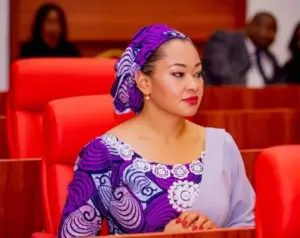President Bola Tinubu has directed that Nigeria deepen bilateral engagements with countries that share its development objectives, highlighting Tunisia as a key strategic partner in advancing south-south cooperation.
This directive was conveyed by the Minister of Budget and Economic Planning, Senator Abubakar Bagudu, during a meeting with Tunisia’s Minister of Economy and Planning, Mr Samir Abdelhafidh, in Abuja on Friday.
Bagudu emphasised that Nigeria firmly believes “stronger collaboration among countries of the global South will accelerate development and reduce long-standing dependence on advanced economies.”
Welcoming senior Tunisian officials, including Mrs Achwek Snoussi and Mr Gara Nader, the minister said, “South–South collaboration, particularly among countries with shared aspirations, would facilitate their development and reduce their dependence on the North.”
He noted that the visit signalled a renewed commitment by both nations to expand cooperation in areas such as national planning, trade, investment mobilisation, and development strategy.
“This meeting is a convergence of two ministries united by similar mandates and shared development ambitions. This is more than a diplomatic courtesy; it is an opportunity to shape a new phase of collaboration between our nations,” Bagudu told the delegation.
He stressed that President Tinubu’s administration places national planning and international economic engagement at the centre of its development agenda, with his ministry coordinating across Nigeria’s federating units.
Highlighting similarities between Nigeria and Tunisia, Bagudu observed that the North African country’s bottom-up, regionally coordinated planning system offers valuable lessons for Nigeria.
He revealed that Nigerian officials are reviewing Tunisia’s model to explore knowledge-sharing in digital transformation, pharmaceutical development, industrial innovation, and investment facilitation.
“Your emphasis on digital growth in Tunisia’s 2026–2030 plan resonates strongly with Nigeria’s goal of building a one trillion-dollar economy by 2030. There is much we can learn from your progress, and much we can achieve together,” he said.
Read Also
READ ALSO: Tinubu Approves Committee To Drive Implementation Of New Tax Policy
Bagudu added that he would brief President Tinubu immediately and fast-track arrangements for a reciprocal visit to Tunis.
In his remarks, Abdelhafidh expressed gratitude for the warm reception, stressing Tunisia’s commitment to forging “a durable, mutually beneficial partnership with Nigeria.” He described Nigeria as “a regional powerhouse and a strategic ally in shaping the future of the African and Arab economic space.”
He added, “We are here because we believe Nigeria and Tunisia can accomplish far more together than separately. Our ministries share similar responsibilities—planning, investment, and international cooperation—and this creates a natural basis for collaboration.”
The Tunisian minister outlined Tunisia’s bottom-up development planning system for 2026–2030, which integrates priorities from local councils, regional assemblies, district authorities, and ministries.
He explained, “Our approach is anchored on inclusiveness. Local and regional bodies are articulating their priorities, and we are integrating them with national and sectoral strategies. It is a model we believe aligns closely with Nigeria’s federated planning system.”
Abdelhafidh also highlighted potential areas for immediate cooperation, including the digital economy and e-governance, industrial modernisation, pharmaceutical and health technology development, investment facilitation, and technical capacity building.
He said Tunisia is prepared to exchange expertise while learning from Nigeria’s experience in federal coordination, macroeconomic reforms, and large-scale development management.
“This partnership should not be theoretical; it should produce concrete programs that benefit the citizens of both countries,” he said.
He further noted that both nations’ participation in the Arab–African Trade Programme presents opportunities to deepen trade, strengthen logistics networks, and build cross-regional economic value chains.
“The Arab–African Trade Program has brought us closer to our African partners,” Abdelhafidh said. “Nigeria is central to Africa’s economic future, and strengthening our relationship is both strategic and necessary.”





